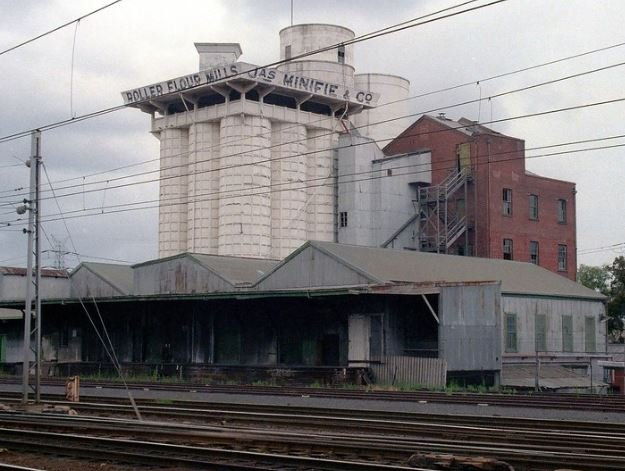- Joined
- May 8, 2014
- Messages
- 1,866
- Reaction score
- 2,447
What was so Great about it anyway?
Free Prozac?
Free Prozac?

Gilly47 said:I have heard all the swagman stories during the depression, heard from parents and grand parents.
No one ever mentioned family members being on the road. Guessing many were from the cities. People in the bush, as my family were, did exactly as Bob Moriarty said. Not many places in a city to grow and hunt for food.
ray :sunny: :cloudy: :sunny: :cloudy: :gemstone: :gemstone: :gemstone:
Wishfull said:Ive worked on a few houses made back in that period. They used whatever they had available. The timbers were rarely straight and were tough sawn. Not much was straight and square. They weren't as pedantic as we are now.
Dad and Grandpa used to go night spear fishing with shellite lanterns. They would light a fire on tge beach so they knew where the shore was and walk along the edge of the reefs at low tide with a Hessian bag strung over their backs suspended with a rope over one shoulder to put the fish in thst they had speared. They used to get a wheat bag full almost every time they went out.
The last time I went out was with a halogen underwater light and a motor bike battery over one shoulder and bag on the other. I think I got 5 fish. That was about 10 years ago.
Just not the fish there anymore. The trawlers fixed that.

goldtrapper said:Gilly47 said:I have heard all the swagman stories during the depression, heard from parents and grand parents.
No one ever mentioned family members being on the road. Guessing many were from the cities. People in the bush, as my family were, did exactly as Bob Moriarty said. Not many places in a city to grow and hunt for food.
ray :sunny: :cloudy: :sunny: :cloudy: :gemstone: :gemstone: :gemstone:
Back in the depression the "Bush" was 20 miles out of the city center and rabbits closer.
BigWave said:My maternal Grandfather owned a large flour mill in Kensington (J.A.S. Minifie).
During the depression, hundreds of swaggies would jump ride the grain trains, and they were each given a small bag of flour at the mill.
https://www.prospectingaustralia.com/forum/img/member-images/6786/1585850349_jas_minifie.jpg
Grandpa (R.P. Minifie) was the youngest Australian ACE during WWI (flying Sopwith planes with the Royal Airforce UK), and was accredited with 21 "kills"
Later, his mill also developed the O-So-Lite cake mix brand, so mum would get a cake mix twice a week.
We grew up (thanks mum) on brains, kidney, liver and tripe.
Correct grubstake.grubstake said:That's an interesting family history, but I think you've got the founder's name slightly wrong. "Jas" used to be the usual abbreviation for "James" and I found an online article that apparently confirms my suspicion:
https://wongm.com/2019/10/grain-train-melbourne-kensington-flour-mill/
Gilly47 said:I have heard all the swagman stories during the depression, heard from parents and grand parents.
No one ever mentioned family members being on the road. Guessing many were from the cities. People in the bush, as my family were, did exactly as Bob Moriarty said. Not many places in a city to grow and hunt for food.
ray :sunny: :cloudy: :sunny: :cloudy: :gemstone: :gemstone: :gemstone:
Probably more (the death toll in china is poorly known, 24 million when it may be 50 million - one million died in a single day, Also the 9 million in SE Asia, Dutch East Indies and the Philippines are usually forgotten, as are the 3 million of Japan itself - Russia is sometimes underestimated (probably at least 24 million).Nightjar said:With the talk of recession in these troubled times, which could lead to another depression?
During the 30's depression, many died from influenza, pellagra (starvation related), tuberculous and other contagious diseases.
We all know what ended the "The Great Depression" through the 1930's, WW2!
Millions of unemployed were now employed, and deaths escalated, and estimated 75 million died as result of this futile war.
Enter your email address to join: